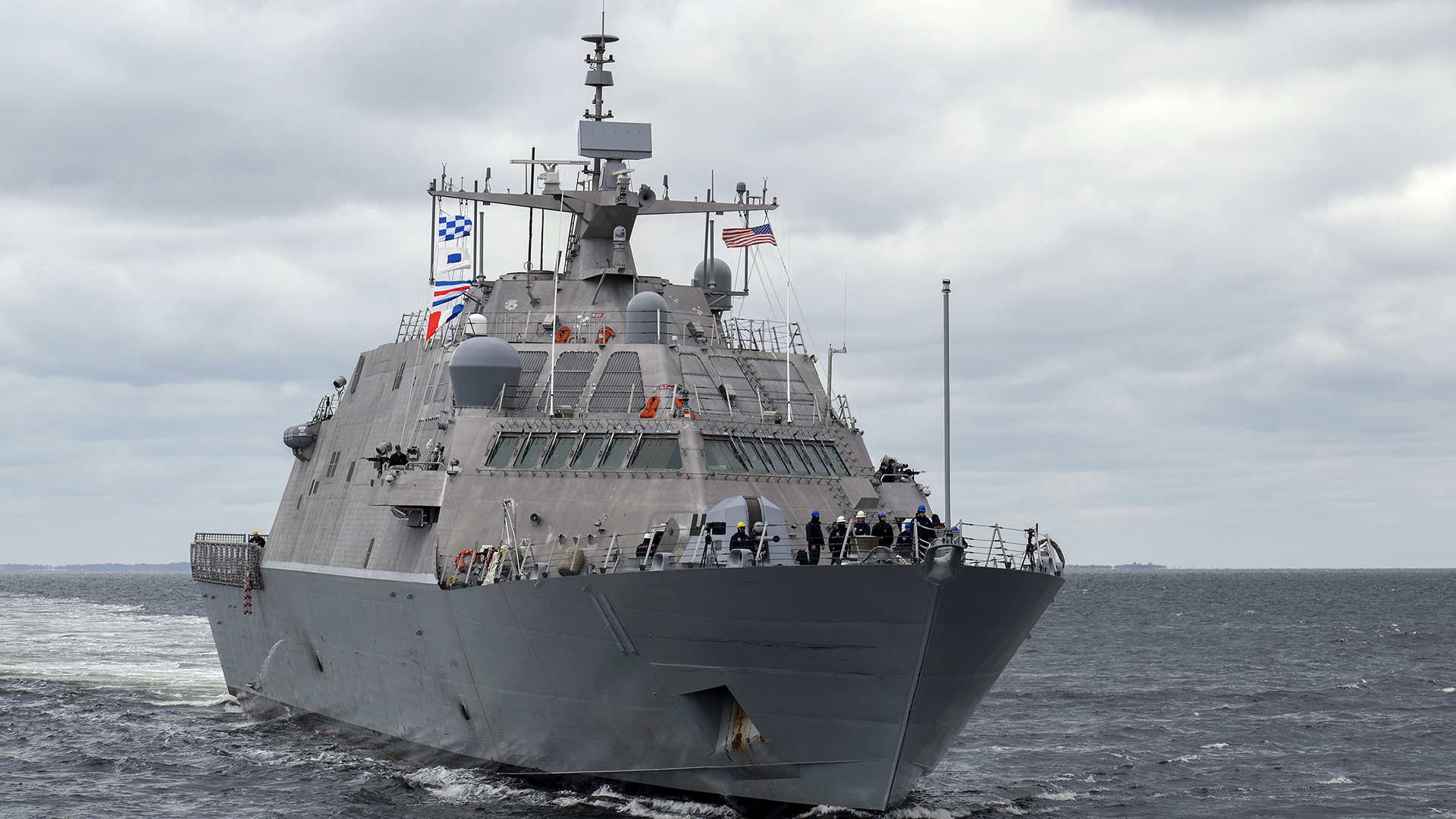Instead of decommissioning nine Freedom-class Littoral Combat Ships, or LCSs, as the U.S. Navy had intended, a recently released draft spending bill from House Appropriations Committee would keep five while leaving the rest on the chopping block. The fleet’s future has been left hanging in the balance for several months now, and the newly proposed legislation echoes suggestions that have been made by the Navy to sell the ships off to select allies.
Pending the bill’s passage, there are certainly potential routes that the Navy could take for the four LCSs that would be slated to undergo what would still be an untimely decommissioning. However, what they would plan to do with the remaining five that may narrowly avoid the axe if the legislation is passed, is currently ambiguous. The official Fiscal Year 2023 defense funding bill released by the House Appropriations Committee outlines that possible use cases could include missions in Southern and African commands without providing additional detail.
It’s not immediately clear which five Freedom-class LCSs would be kept and which four will be decommissioned under this proposed spending bill, either. All of these ships are relatively young, a number of them essentially still in their infancy with the youngest having been commissioned less than two years ago, which has led to widespread criticism surrounding the Navy’s decision to decommission so many of them. The move has been largely motivated by the need to bankroll other naval modernization initiatives, as the Freedom class has shaped up to be a money pit for the Navy and has failed to meet operational expectations.
Debilitating issues with the Freedom-class combining gear, a mechanism that transfers power from the ship’s engines to its water jets, as well as roadblocks in the fielding of the fleet’s anti-submarine warfare (ASW) package have cost the Navy a significant amount of time and money without positive results. The service believes additional funds that would be needed to be invested in these ships, and to operate them in general, could be better spent elsewhere. In fact, the funds that were predicted to be saved by decommissioning the nine Freedom-class LCS, among 15 other vessels, would help cover the $27.9 billion shipbuilding budget for the new Ford-class aircraft carriers and the upcoming Columbia-class ballistic missile submarine.

Rear Adm. John Gumbleton, the Navy’s budget chief, revealed that the cost of those nuclear-powered vessels accounts for 56% of their shipbuilding budget, thereby requiring that the Navy diligently consider where the money for upgrading the rest of the fleet was going to come from. Military.com states the following from a piece published in March 2022:
“A piece of that was our choice going after decommissioning vessels that were very expensive to maintain,” Gumbleton said. The 24 ships would generate savings of “3.6 billion across the budget that I can reinvest” over five years, he added, calling it “not an insignificant number.”
The LCSs are certainly expensive to operate and maintain. In 2021, The War Zone reported that they are guilty of costing the Navy almost as much as the far more advanced and capable Arleigh Burke-class destroyer to run. To be specific, budget data cited in the article showed that the cost of running a single LCS is around $70 million a year, compared to the approximate $81 million it takes for an Arleigh Burke class destroyer.

In a congressional hearing last month, Adm. Michael Gilday, the U.S. Navy’s Chief of Naval Operations, proposed that the U.S. government consider selling the Freedom-class ships to countries that could more greatly benefit from them. Gilday offered South America as an example and Senator Jerry Moran, a Kansas Republican, suggested the Dominican Republic, citing the success that the Freedom-class LCS USS Sioux City had seen in joint drug seizing operations alongside the Dominican Republic’s Navy. However, other officials were not as quick to support the possibility of a sale.
“The Navy owes a public apology to American taxpayers for wasting tens of billions of dollars on ships they now say serve no purpose,” wrote Represenative Elaine Luria, a Virginia Democrat, in a statement shared on Twitter in March following the initial decommissioning announcement.
Gilday, though, continued to adamantly vouch for the decommissioning in his congressional address, going on to explain that it simply wouldn’t be wise to continue putting money into a fleet that doesn’t offer the capability the United States needs to address the “Chinese undersea threat.” In what was almost certainly a stab at the Freedom class’ failed ASW package, the statement also further supports Gilday’s suggestion to possibly sell the ships to an ally with objectives more suited to what the Freedom-class LCSs can offer. Although, at this point, it’s worth asking why any nation would want to take on the costly and maintenance-heavy responsibilities associated with these ships or if they could afford to operate them at all even if they were very inexpensive to acquire.

Despite the laundry list of issues facing the Freedom class, they did recently experience at least one win. In May, USS Sioux City, which is still potentially on the chopping block, was the first of either LCS type to be deployed to European and Middle Eastern waters. The Navy had originally intended for these ships to shine in regions like this, so the outcome of the trip could later serve as proof that the five Freedom-class LCSs that could be spared by the appropriations committee deserve the chance to carry out assignments of this nature in the future.
Either way, the number of Freedom-class LCSs that were initially reported to be nearing their end of days could be decreasing. As more details surface regarding the specifics of the appropriations committee’s bill, the clearer the fate of the controversial Freedom class may become. Regardless, the battle over the Pentagon’s budget is well underway and the future of these ships could change drastically as the massive spending bill winds its way through Congress.
Contact the author: Emma@thewarzone.com
